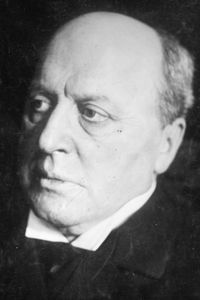Henry James, a renowned American-British author, was born on April 15, 1843, to a wealthy family in New York City, USA. His parents, Henry James Sr. and Mary Robertson Walsh, had three children, including Henry, his brother William James, and sister Alice James. Growing up, Henry developed a passion for reading classical literature from various countries, including English, American, German, French, and Russian.
As a young boy, Henry's family would often travel between the United States and England, exposing him to different cultures and ways of life. He received his education in several cities, including New York, London, Paris, and Geneva. Despite initially aiming for a higher education, Henry discovered his true calling in writing and decided to pursue it.
At the age of 19, Henry briefly attended Harvard Law School, but his interest in literature led him to abandon his studies. Instead, he started writing his first novel, A Tragedy of Error, at the age of 21. This marked the beginning of his prolific writing career, which spanned over four decades and produced 23 novels, including The Ambassadors, The Golden Bowl, The Portrait of a Lady, The American, Washington Square, The Bostonians, and The Wings of the Dove.
In addition to his novels, Henry wrote numerous articles, biographies, autobiographies, and criticisms, as well as plays, such as Guy Domville. He also penned many short stories, some of which were published in local newspapers or for personal enjoyment. Henry's work often appeared in the New York Tribune.
Throughout his life, Henry was a prominent figure in the literary world, leaving behind an extensive body of work. He was also a complex individual, struggling with his sexuality and relationships. Henry's romantic interests included his cousin, Mary Temple, and later, the young man he wrote to, who was 27 years old at the time. He also exchanged letters with Howard Sturgis and Lucy Clifford, but never married.
Henry's brother, William James, passed away when Henry was 67 years old. Henry himself suffered a stroke in 1915 and his health began to decline. He died on February 28, 1916, in London, leaving behind a legacy as a citizen of both the United States and the United Kingdom. Henry was cremated at Golders Green Crematorium and his ashes were interred at Cambridge, Massachusetts.
















































